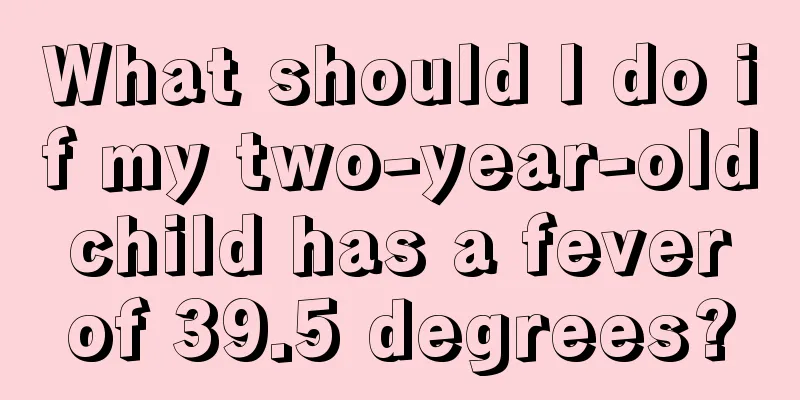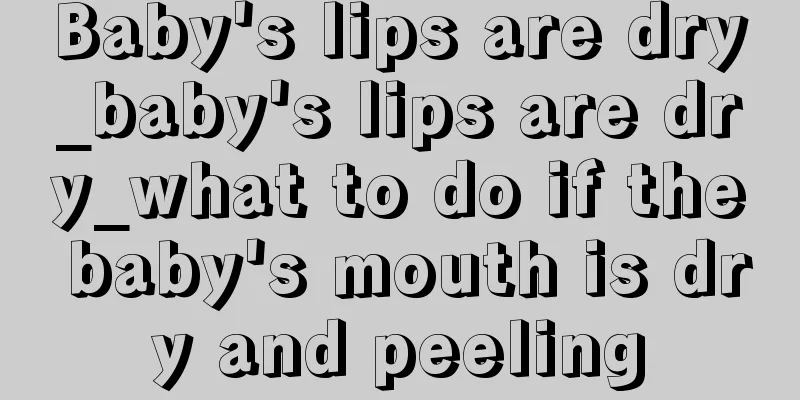Self-test of baby's growth and development indicators

|
There are certain standards for babies as they grow, especially in the development of their limbs, language, hearing, etc. During the baby's growth process, there will be some developmental indicators. These indicators determine the baby's physical and intellectual development, so as parents, we should know something about the baby's growth and development indicators. Limb motor development indicators Seize the three important opportunities for your baby's limb development: Opportunity 1: 0-2 years old. The basic period of children's physical and motor intelligence development is mainly to establish basic abilities in various fields and systems, and to develop basic emotions and daily life functions. Key development areas include the anterolateral tactile system for perception and the large anti-gravity muscle groups for movement. Opportunity 2: 2-4 years old. The turning point in the development of children's physical and motor intelligence is mainly the maturity of the basic functions of various fields and systems, and the beginning of the development of more complex functions and basic independent abilities. Key developmental areas include the posteromedial tactile system for perception and gross motor function for movement. Opportunity three: 4-7 years old. The integration period of children's physical-motor intelligence development focuses on the integration between various functional areas, so as to develop high-skill and high-complexity integrated high-level functions, and at the same time develop a considerable degree of social function. The key development projects include: the vestibular system in perception, the development of fine motor function in movement, the sensory integration function in integration, and the basic thinking function in cognition. Language development indicators There are four stages in the development of a baby's language ability: Stage 1 is 0-1 years old: it is the stage of babbling and language vocabulary accumulation. This vocalization practice reaches its peak when the child is 8 months old, and the volume and sound of the words will change to imitate real language, such as: BABA'MAMA... Stage 2 is 1-2 years old: The language characteristics of this period are speaking single-word sentences, and being able to use gestures and facial expressions to assist language to express needs. He can imitate the bleating of a lamb and likes to ask: What is this called? What is that? ” Stage three is 2-3 years old: children gradually change from being able to speak short sentences to being able to use complex sentences and like to ask questions. How to help your baby: At this time, you should provide your child with a language environment for communication and encourage your child to express himself or herself in long sentences. When he wants a cookie, you can slow down and ask him: Do you want a cookie? "The baby will also imitate mom and dad and gradually use complete sentences. Stage 4 is for 3-6 years old: They can speak fluently, use a wide range of word classes, discover grammatical relationships from adults' conversations, correct their own temporary grammatical errors, and gradually form real language. Visual development indicators Exercise methods for the four major stages of baby visual development: 0-6 months - "black and white period": newborn babies can only see light and shadow. They can just see their mother's face when they are breastfeeding, but cannot see anything further away. 6-12 months - "Color period": This is a critical period for the development of babies' ability to distinguish subtle differences in objects (referred to as visual "sensitivity"). At this time, they need images and toys with sharp color contrast. 1-3 years old - "three-dimensional period": The child can walk upright and begins to have more understanding of three-dimensional space such as distance, front and back, left and right. At this time, parents can prepare some 3D toys for their children. 3-6 years old - "Spatial period": Through vision, children can judge spatial concepts such as the size of objects, up and down, inside and outside, front and back, far and near. At this time, parents should use games to develop their children's spatial vision abilities. Auditory development indicators Three major periods, baby hearing training methods: 0-1 years old: Make good use of “Mom’s Tune”. Since newborn babies have an instinctive auditory preference for certain sounds, when adults speak to babies, they can use a rather special way - the mother's tone. 1-3 years old: Before 1 year old, babies spend most of their time on the ground. After learning to walk, their field of vision is greatly broadened and their range of activities is greatly increased. His thirst for knowledge and curiosity have become stronger. He wants to touch and taste everything, and his ears are waiting to receive more abundant stimulation. 3-6 years old: 3-year-old babies have a certain foundation in language comprehension and auditory memory, and their language expression gradually changes from simple to longer, more complex, and more vivid. This prepares them for entering kindergarten and learning more interpersonal skills, complex games, etc. |
<<: What are the symptoms of laryngitis in children?
>>: What are the clinical manifestations of hydrocele in children?
Recommend
Children suffer from leukemia because of it
Paint is the main culprit of childhood tumors Amo...
What to do when a newborn cries during bath
For many parents, bathing a newborn is a rather t...
What should I do if my child has blue veins on his head?
Children are the most important members of every ...
What to do if your child keeps vomiting at night
If the child's stomach is not good, vomiting ...
The baby is limping but it doesn't hurt
In life, there are always some parents who find t...
What are the acupuncture points for reducing fever in children?
What should I do if my child has a fever? In dail...
What kind of nasal spray is suitable for children?
Rhinitis spray has become one of the essential me...
What foods should children eat to treat constipation?
Once a child suffers from constipation, the toxin...
What is better for children to eat to nourish their brains?
The healthy growth of children is the ardent hope...
At what age do children's teeth begin to change? What should we pay attention to when children’s teeth are changing?
Tooth replacement is a process that children must...
What to do if your baby has blue eyes
Parents with children at home sometimes encounter...
What should I do if my child's nose is very flat?
Children are relatively young and their appearanc...
What are the dangers of squeezing out BCG suppuration?
BCG vaccination is something every parent needs t...
Is there any harm in taking zinc supplements if you are not zinc deficient?
In life, everyone knows that babies need a lot of...
Newborns sometimes retch
Most of the time, dry heaving is related to the f...









